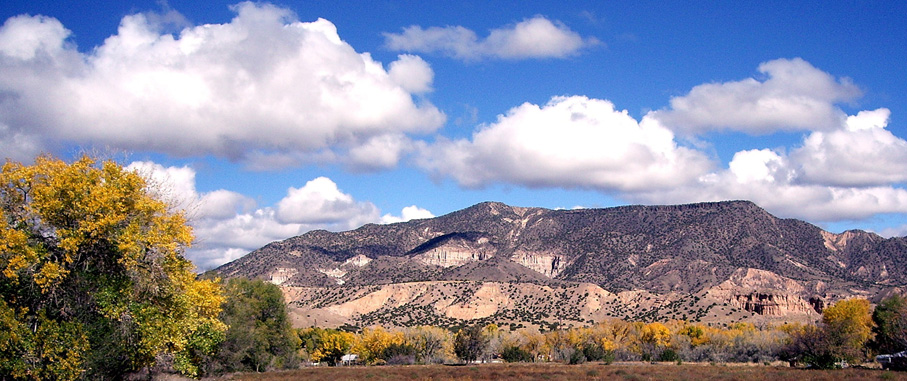 Willa Cather
Willa CatherThe desert southwest in literature.
"Beside the river was a grove of tall, naked cottonwood-woods–trees of great antiquity and enormous size–so large they seemed to belong to a bygone age. They grew far apart, their strange twisted shapes must have come about from the ceaseless winds that bent them to the east and scoured them with sand, and from the fact that they lived with very little water,–the river was nearly dry here for most of the year. The trees rose out of the ground at a slant, and forty or fifty feet above the earth all these white dry trunks changed their direction, grew back over their baseline. Some split into great forks which arched down almost to the ground; some did not fork at all, but the main trunk dipped downward in a strong curve, as if drawn by a bow-string; and some terminated in thick coruscation of growth, like a crooked palm tree. They were all living trees, yet they seemed to be of old, dead, dry wood, and had very scant foliage."
pp. 221-222.
And then to the west Pima lands:
"The Faith, in that wild frontier, is like a buried treasure; they guard it, but they do not know how to use it to their soul's salvation."
Father Joseph recites the legend of a Piman cave he was shown by a native man as he re-tells the story to Father Latour.
p. 207.
They seemed to have none of the European's desire to "master" nature, to arrange and re-create. They spent their ingenuity in the other direction; in accommodating themselves to the scene in which they found themselves. This was not so much from indolence, the Bishop thought, as from an inherited caution and respect. It was as if the great country were asleep, and they wished to carry on their lives without awakening it; or as if the spirits of earth and air and water were things not to antagonize and arouse. When they hunted, it was with the same discretion; an Indian hunt was never a slaughter. They ravaged neither the rivers nor the forest, and if they irrigated, they took as little water as would serve their needs. The land and all that it bore they treated with consideration; not attempting to improve it, they never desecrated it.
pages, 232-233.
 Willa Cather, Death Comes for the Archbishop. New York: Random House, 1990. (Vintage Classic, 1971) [New York: Alfred Knopf, 1927]
Willa Cather, Death Comes for the Archbishop. New York: Random House, 1990. (Vintage Classic, 1971) [New York: Alfred Knopf, 1927]